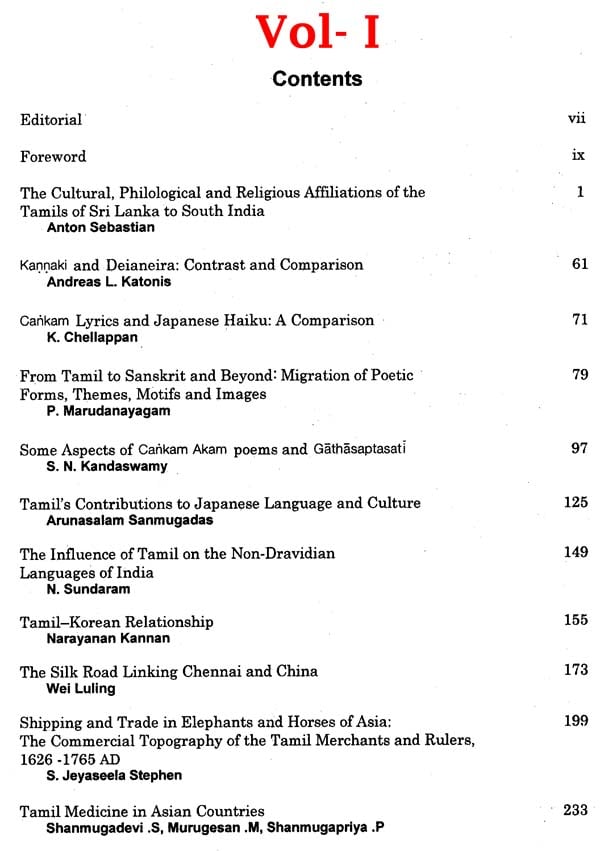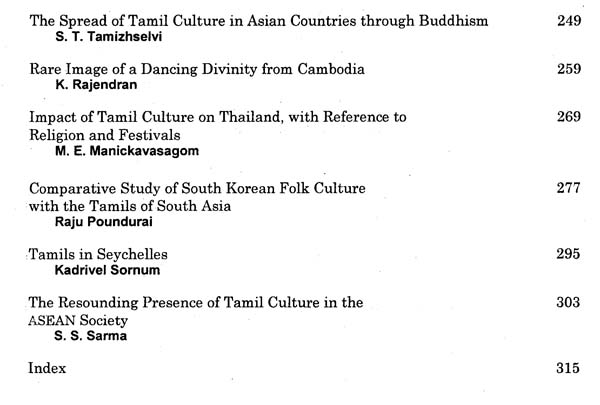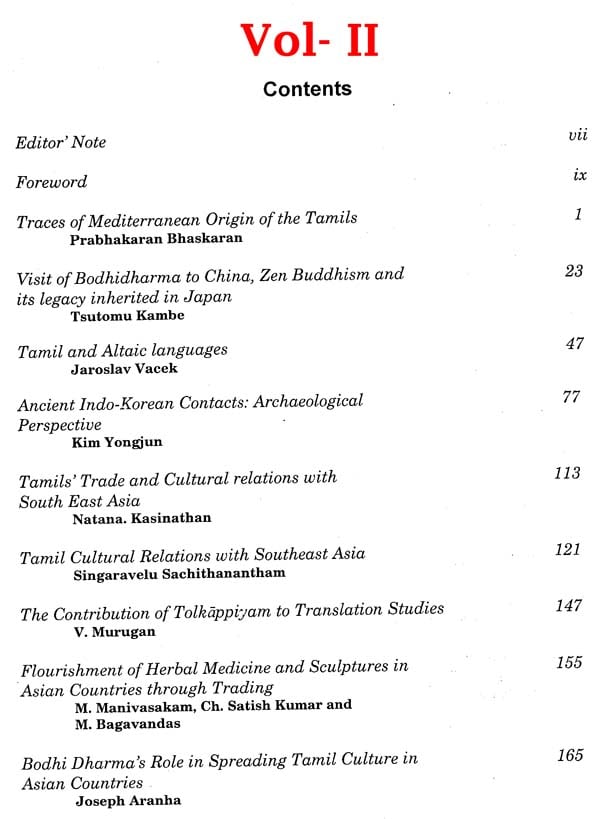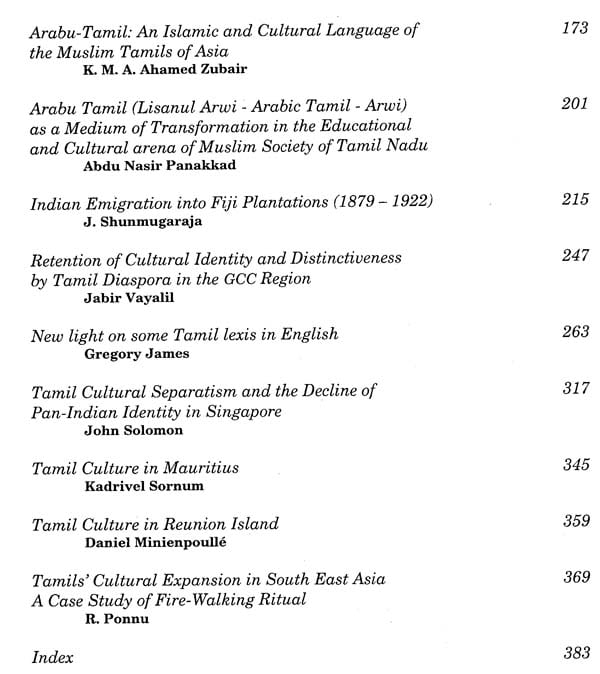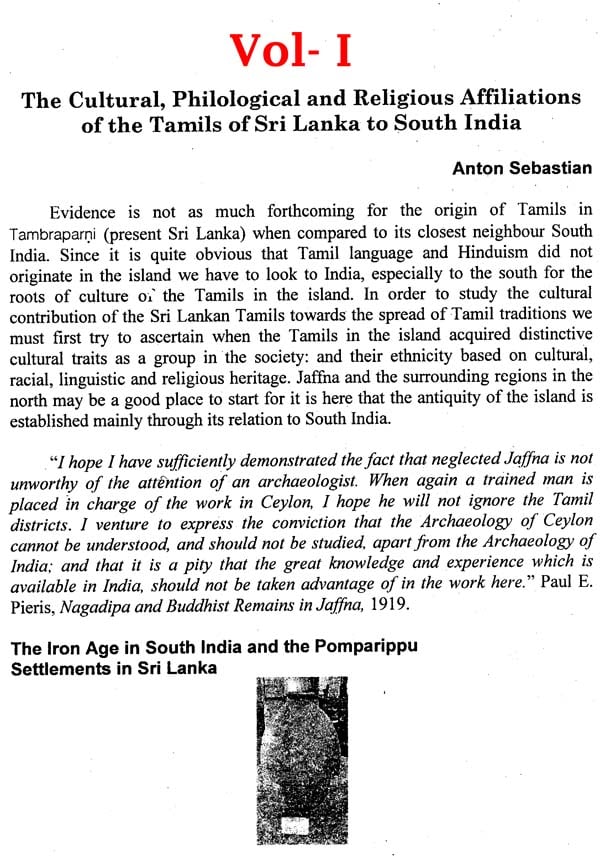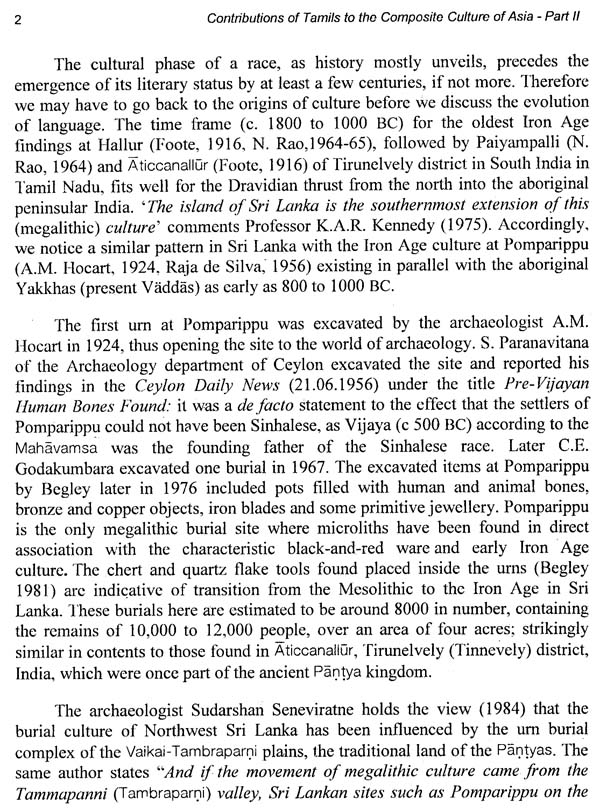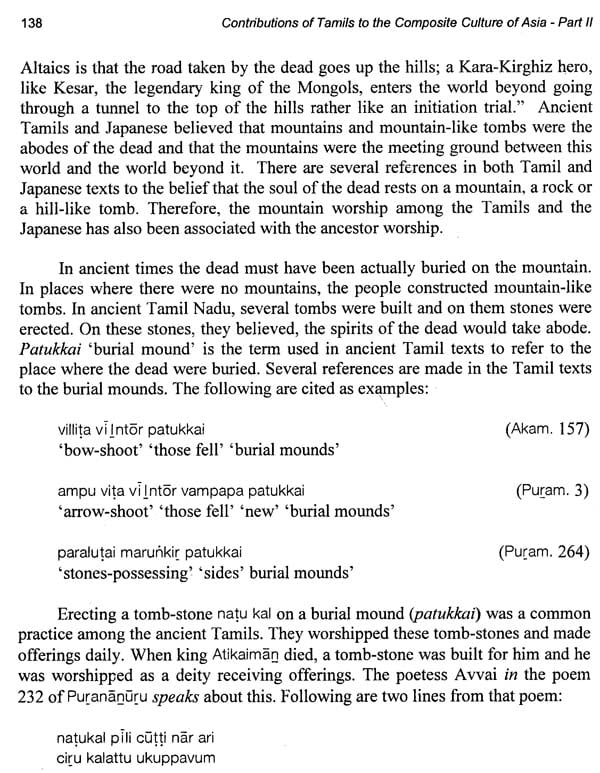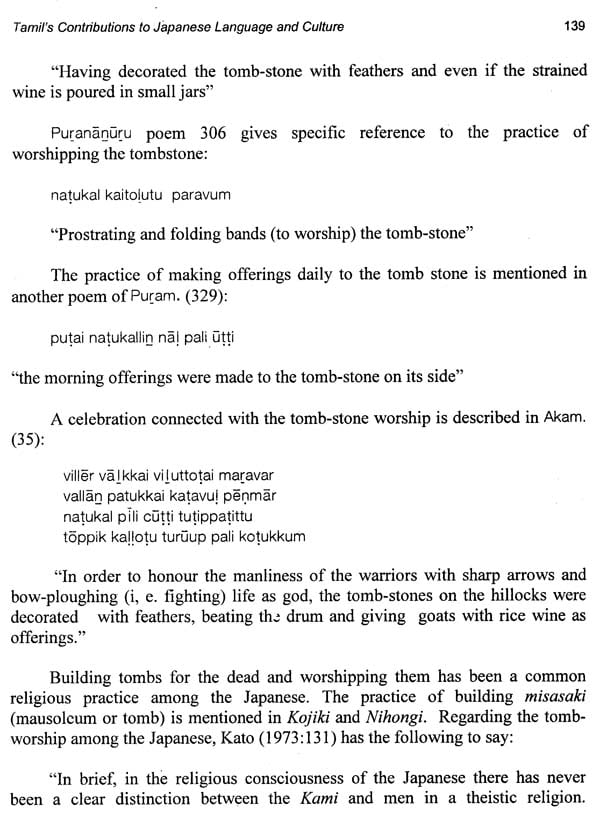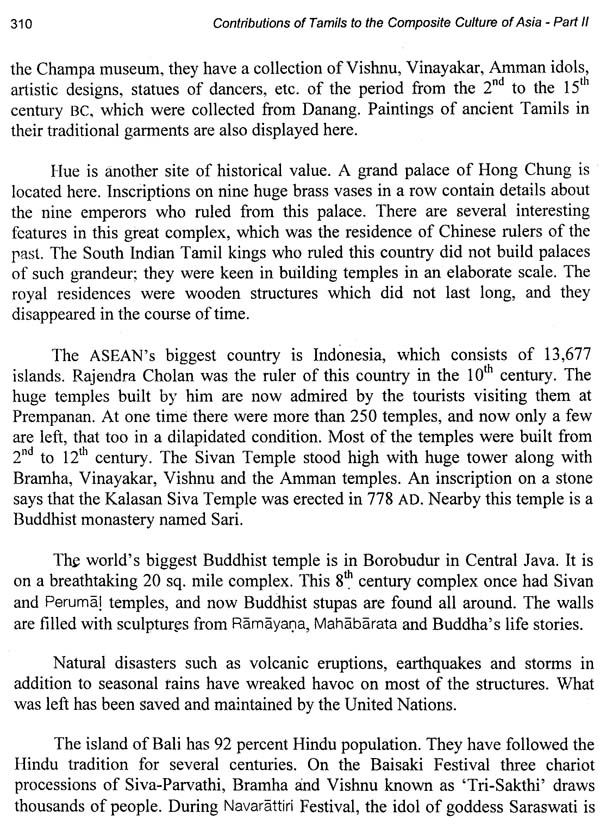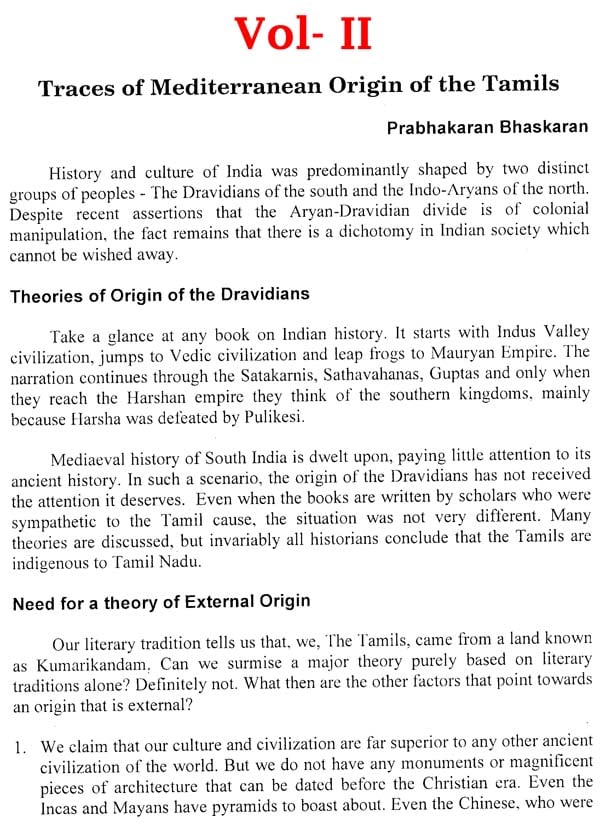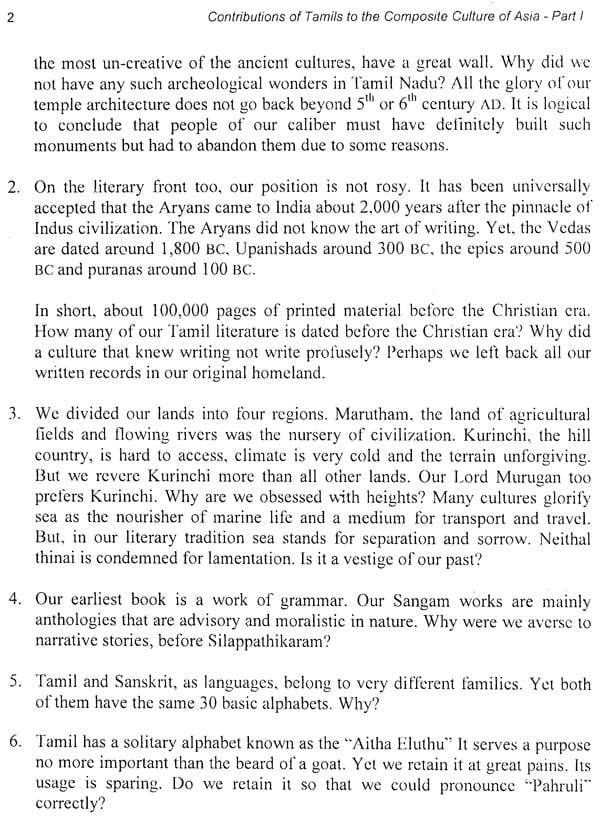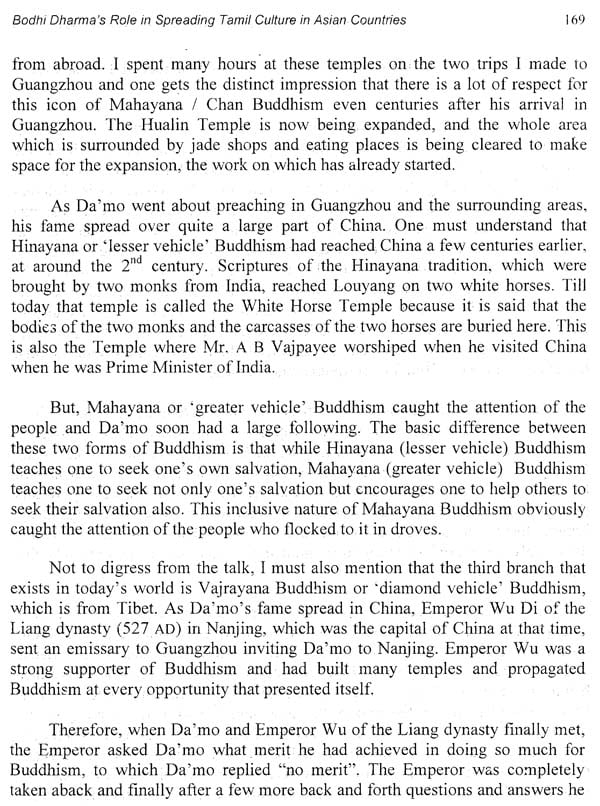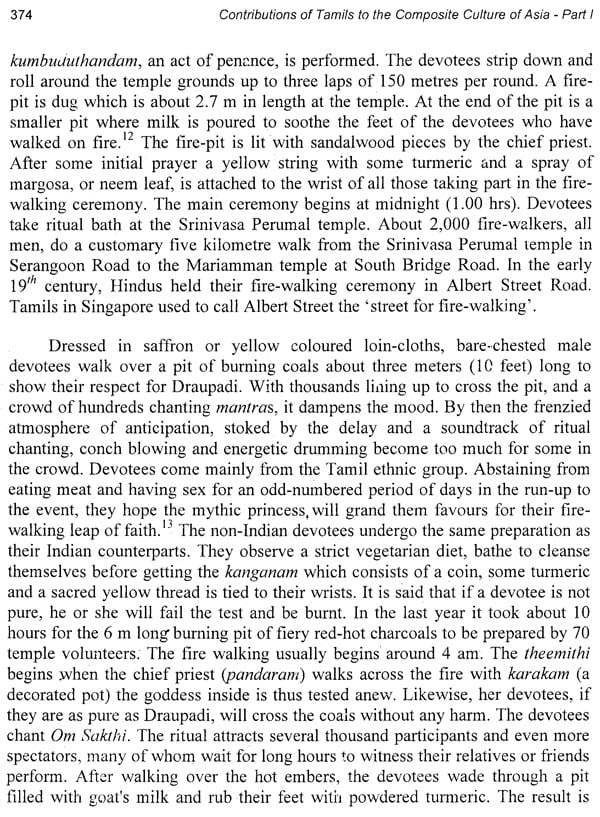
Contributions of Tamils to the Composite Culture of Asia (Set of Two Volumes)
Book Specification
| Item Code: | NAY758 |
| Publisher: | Institute of Asian Studies, Chennai |
| Language: | English |
| Edition: | 2014 |
| ISBN: | Vol- I:9788187892540 Vol- II: 9788187892571 |
| Pages: | 703 |
| Cover: | PAPERBACK |
| Other Details | 9.50 X 7.50 inch |
| Weight | 1.32 kg |
Book Description
These cultural relations can be traced back to the prehistoric voyages of the Tamils, one of the most powerful seafaring races of the Indian peninsula. They had developed very active commercial and cultural contacts with both the Occident and the Orient. This is evident from cultural and linguistic proximities, and the close genetic relationship between the Tamils on the one side, and many other great cultures of the world including the Greco-Roman, the Mediterranean, the Sumerian, the Semitic, the East Asian and the Southeast Asian peoples on the other side.
It is noted by many scholars that even as early as the sixth century BC, at the time of Darius who ruled the Mediterranean regions, the Tamils had commercial contacts with the ancient Greeks and Romans-who are mentioned frequently in ancient Tamil classical literary works as the Yavanas. Apart from Greece and Rome, the ancient Tamils also had trade contact with Babylonia. K.A.Nilakanta Sastri has pointed out that there are striking similarities between the ancient gold fillets at Palestine and the gold mouth pieces that are found at the excavations at Aticcanallur. The first-century AD Greek text Periplus Maris Erythraei, which deals with navigation and commercial opportunities, mentions sandalwood being traded from South India (especially from Mysore, Coimbatore and Salem districts) apparently to the Near East, at a very early period.
The naturalist Pliny (23-79 AD), as well as the author of the Periplus Maris Erythraei and Ptolemy (second century AD) speak elaborately of the extensive trade of the West with Tamil Nadu and mention at least forty harbours, towns and rivers along the southern coast of India. These names are identified as those found in contemporary Tamil literature (Thaninayagam, Indian Thought and Roman Stoicism, Tamil Culture, 1963).
Book's Contents and Sample Pages
